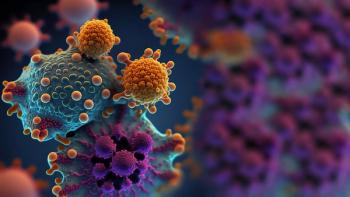
Under a global alliance with the Australian non-profit GC4K and Weill Cornell Medicine, PackGene aims to deliver a custom-tailored gene therapy solution for hereditary spastic paraplegia type 56, an exceptionally rare neurological disease.


Under a global alliance with the Australian non-profit GC4K and Weill Cornell Medicine, PackGene aims to deliver a custom-tailored gene therapy solution for hereditary spastic paraplegia type 56, an exceptionally rare neurological disease.

The approval makes HYQVIA [Immune Globulin Infusion 10% (human) with Recombinant Human Hyaluronidase] the first and only facilitated subcutaneous immunoglobulin to be approved in Japan to treat these disorders.

The approval of Hikma Pharmaceuticals’ liraglutide injection marks the first generic version of Victoza, a GLP-1 receptor agonist.

With the DKK 8.5 billion (US$1.2 billion) investment, Novo Nordisk will build a new modular and flexible production facility in Odense, Denmark, to produce multiple products for rare diseases.

Under the deals, the parties will advance therapeutics for fibrotic diseases, osteoarthritis, and Alzheimer’s disease.

Under the deal, Novartis will in-license PTC518, an mRNA splice modulator for the huntingtin gene, which has the potential to be the first oral disease-modifying therapy for Huntington's disease.

Through the collaboration, Merck will use Mestag’s proprietary RAFT platform to investigate the pathogenic role that fibroblasts play in inflammatory diseases.

By approving EBGLYSS (lebrikizumab-lbkz), FDA has made available a new biologic treatment for moderate-to-severe atopic dermatitis that is not well controlled with topical treatments.

With the completion of its acquisition of Morphic, Lilly expands its immunology pipeline to include Morphic's oral integrin therapies to address inflammatory bowel disease.

The acquisition adds a Phase III therapeutic peptide candidate to AstraZeneca’s late-stage pipeline for rare diseases.

The acquisition adds NM26, a Phase II-ready bispecific antibody for treating atopic dermatitis, to Johnson & Johnson’s immune-mediated and inflammatory disease portfolio.

Through a multi-year collaboration, Pfizer and Evotec aim to conduct early discovery research for therapeutics against metabolic and infectious diseases.

The Celsius Therapeutics acquisition will add CEL383, a potential first-in-class anti-TREM1 antibody for IBD, to AbbVie’s portfolio.

FDA has granted expanded approval to Sarepta Therapeutics for Elevidys to treat DMD in non-ambulatory patients, in addition to ambulatory patients.

Under an agreement, Johnson & Johnson will acquire Numab Therapeutics’ wholly owned subsidiary to gain global rights to NM26, a bispecific antibody targeting atopic dermatitis.

Biogen’s acquisition of HI-Bio includes lead investigational mAb, felzartamab, under development for treating a range of immune-mediated diseases.

Innovation in this space depends on strategizing for GMP compliance and market access.

J&J’s nipocalimab is in development for reducing the risk of FNAIT in alloimmunized pregnant adults, a rare disease that may risk the life of the fetus or newborn.

ProBioGen and Mapp Biopharmaceutical will use the former’s GlymaxX technology to develop a cell line for an afucosylated antibody that targets Marburg virus infection

Under a global license and collaboration agreement, AbbVie and OSE Immunotherapeutics will aim to develop OSE-230, a mAb for treating chronic inflammation.

Accurately targeted immunotherapies through reliable neoantigen recognition enable personalized medicine development.

The success of mRNA-based vaccines paves the way for mRNA in oncology and beyond.

Bristol Myers Squibb and SystImmune plan to co-develop and co-commercialize lead ADC candidate for cancer treatment in US.

Roche will gain exclusive worldwide rights to develop, manufacture, and commercialize Ionis’ investigational RNA-based therapeutic candidates for Alzheimer's and Huntington's disease.

New routes to cancer treatment can be found with the help of tumor-infiltrating lymphocyte (TIL) therapies.